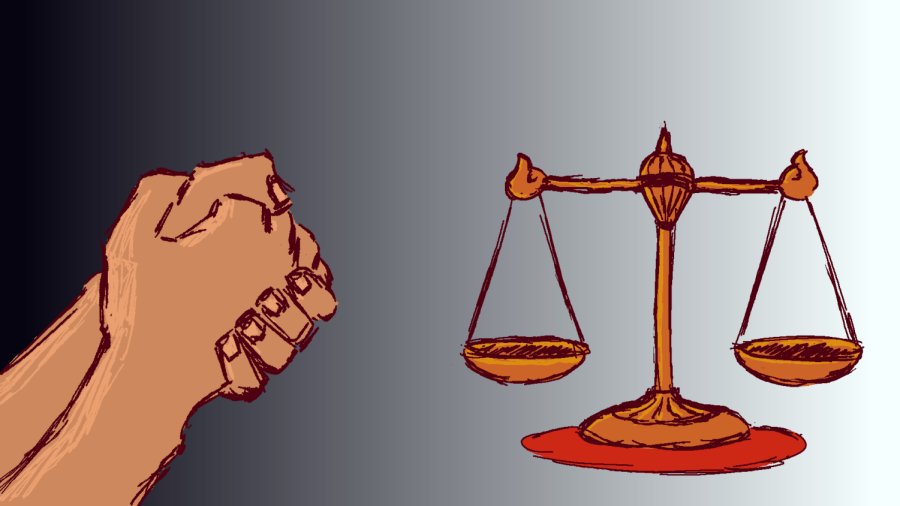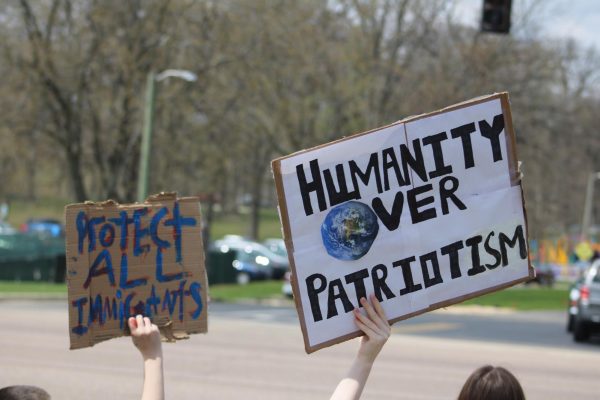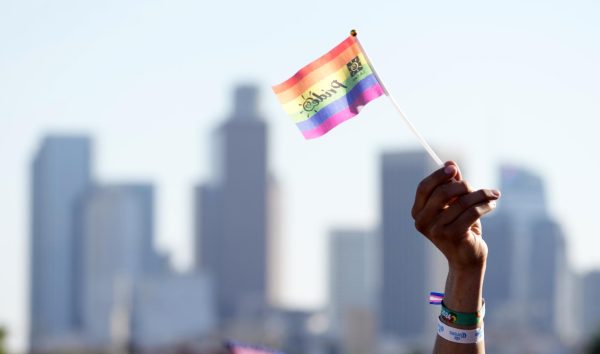Editorial: It’s time to stop blurring the lines between church and state
The separation between church and state has blurred the lines over the years and in countries like the United States, France and Iran. (Isaac Trusty | Northern Star)
Theocracy has no place in the modern day. The United States is not “one nation under God” anymore; in fact, it never should have been.
As a country, we need to reconsider how closely our religion and government intersect. It is past time that world governments become secular and are not only tolerant, but inclusive of all religions. The change must begin now.
America’s bloody history of religious assimilation
Religion and government should not coexist for many reasons. For one, the practice excludes those who don’t practice certain religions while prioritizing the ideals of the state religion. Primarily, religion has historically been a tool of oppression for countries around the world. In the U.S., the clearest example of this is the colonization of America, in which European colonizers justified the murder, dislocation and cruelty upon indigenous peoples as actions of divinity.
As explained in Jessica Keating’s “The Assimilation, Removal, and Elimination of Native Americans, “Ecclesial groups, both Protestant and Catholic, along with some government officials, primarily saw themselves as attempting to aid Native people through a program of moral, religious, and cultural reformation.”
The language Keating uses sugarcoats the reality of assimilation, however. One of the darkest examples of assimilation and religion fueled governance the United States has is the history of boarding schools abusing and killing Native people in the name of religion.
In 2021, Congress found that “Assimilation processes, such as the Indian Boarding School Policies, were adopted by the United States Government to strip American Indian, Alaska Native, and Native Hawaiian children of their Indigenous identities, beliefs, and languages to assimilate them into non-Native culture through federally funded and controlled Christian-run schools, which had the intent and, in many cases, the effect, of termination, with dire and intentional consequences on the cultures and languages of Indigenous peoples.”
These boarding schools, popular in the U.S. and Canada, forcibly removed indigenous people from their homes, cut their ties to their culture and hoped to mold them into what they would deem as reformed Christians.
“The Canadian government has said physical and sexual abuse was rampant at the schools, and (Pope) Francis on Thursday begged forgiveness for the ‘evil’ of clergy sexual abuse committed against young and vulnerable people,” according to Indian Country Today.
The “evil” Francis speaks of doesn’t stop there. Over 500 children have died in approximately 19 of these boarding schools, according to Indian Country Today.
Federal governments made an effort to forcibly impose religious standards on people – a state not separated by church, but driven by it.
Other countries have historically weaponized religion to justify their harmful actions. The combination of church and state not only blurs the lines of country and religion, but it also blurs the line of free will.
For example, according to Pew Research Center, France has high levels of government restrictions on religion. In 2021, protests broke out in France after the passing of an “anti-separation” bill outlawing minors from wearing head coverings. As France has the largest Muslim population in Europe, the public interpreted it as a law against Islam.
The law reads, “Prohibition in the public space of any conspicuous religious sign by minors and of any dress or clothing which would signify inferiority of women over men,” according to Aljazeera, an English news outlet owned by Qatar.
Iran’s unease – a product of theocracy
The death of 22-year-old Jina Mahsa Amini at the hands of the Iranian morality police – a group established in 2005 to enforce religious dress code – has led to a series of protests in Iran of people who are fed up with their government controlling religious practices. After the death of Amini, Iranian officials and morality police responded by arresting and harming protestors. These protests, which have led to hundreds of deaths from security forces, now call into question the obsolete nature of church and state working in tandem.
Iranian officials have responded to the protests by inciting physical and sexual abuse against women, according to a UN Press Release.
The morality police are using Islam to justify their violent acts against women and their supporters. They uphold their interpretation of the Islamic religion and enforce strict rules of how to dress, like mandatory headscarfs and no heavy makeup, and interfere with social events. The enforcement of these rules normalizes oppression against marginalized groups, which has become sanctioned by the government, and chooses not to condemn the actions of the morality police.
As of Sunday morning, morality police in Iran have been allegedly abolished, but the Associated Press has been unable to confirm this.
The bottom line: Separate church and state for good
As history has shown, governing bodies should have no room for interpretation when it comes to allowing religion to influence law. In the modern day, we must keep religion out of government and let citizens live freely, regardless – and supporting of – their beliefs.












